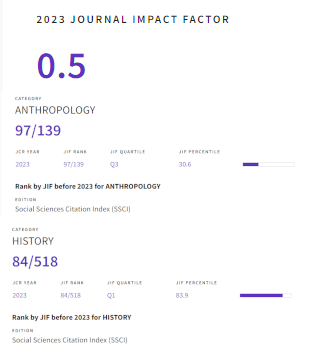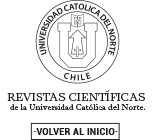Water, technology and governmentality:
Territorial reconfiguration around the Chone multipurpose mega-dam in Ecuador
DOI:
https://doi.org/10.22199/issn.0718-1043-2019-0035Keywords:
territorial reconfiguration, governmentality, water governance, megadams, EcuadorAbstract
Historically, mega-dams have been imagined and built by hydraulic experts to govern and allocate water. Although these dams have some important benefits, their positive effects are often highly overrated while their socio-environmental and economic impacts on local populations are fairly underestimated. Despite this, in many Andean countries the construction of such projects is being resumed as indispensable and unfailing. Mega-dams are promoted by self-defined left-wing progressive governments as modern ways of water governance, closely related to development, buen vivir and wellbeing discourses. This article shows through the Chone multipurpose mega-dam in coastal Ecuador, the discursive use of technology that is involved in its construction and implementation process. It furthermore analyzes and shows that these water technologies not only inflict material changes, but also social, cultural and agro-productive territorial transformations. The article concludes that megadams should be understood as powerful governmentality tools since they are imposed not only by coercive forms of power, but also through more inclusive forms that justify and legitimize their development.
Downloads
References
Acosta, A. (2010). El Buen Vivir en el camino del post-desarrollo: Una lectura desde la Constitución de Montecristi. Policy Paper, 9.
Acosta, A., Cuvi, J., Ospina, P., Unda, M., De la Torre, C., Villagómez, G., … Machado, D. (2013). El correísmo al desnudo (Segunda Edición). Quito.
Andolina, R. (2012). The values of water: Development cultures and indigenous cultures in highland Ecuador. Latin American Research Review, 47(2), 3-26.
Ansar, A., Flyvbjerg, B., Budzier, A. y Lunn, D. (2014). Should we build more large dams? The actual costs of hydropower megaproject development. Energy Policy, 69, 43-56.
Baghel, R. (2014). River Control in India: Spatial, Governmental and Subjective Dimensions. Springer Science y Business Media.
Baghel, R. y Nüsser, M. (2010). Discussing Large Dams in Asia after the World Commission on Dams: Is a Political Ecology Approach the Way Forward? Water Alternatives, 3(2), 231-248.
Bakker, K. (2012). Water: Political, biopolitical, material. Social Studies of Science, 42(4), 616-623.
Banco Central del Ecuador (2016). Reporte de pobreza, ingreso y desigualdad. Quito: Banco Central del Ecuador.
Baviskar, A. (1995). National Development, Poverty and the Environment. En Baviskar, A. (Ed.). In the Belly of the River: Tribal Conflicts over Development in the Narmada Valley (pp. 19-33). Delhi: Oxford University Press.
Bebbington, A. (2012). Underground political ecologies: The second Annual Lecture of the Cultural and Political Ecology Specialty Group of the Association of American Geographers. Geoforum, 43(6), 1152-1162.
Bijker, W. E. (2007). Dikes and dams, thick with politics. Isis, 98(1), 109–123.
Bijker, W. E. (2015). Technology, Social Construction of. In International Encyclopedia of the Social & Behavioral Sciences (2nd edition, vol. 24). Elsevier Ltd.
Boelens, R. (2014). Cultural politics and the hydrosocial cycle: Water, power and identity in the Andean highlands. Geoforum, 57, 234-247.
Boelens, R., Hoogesteger, J., Swyngedouw, E., Vos, J. y Wester, P. (2016). Hydrosocial territories: A political ecology perspective. Water International, 41(1), 1-14.
Brighenti, A. M. (2010). On Territorology Towards a General Science of Territory. Theory, Culture & Society, 27(1), 52-72.
Cadman, L. (2010). How (not) to be governed: Foucault, critique, and the political. Society and Space, 28(3), 539-556.
Caria, S. y Dominguez, R. (2016). Ecuadors Buen vivir: A New Ideology for Development. Latin American Perspectives, 43(1), 18-33.
Centeno, M. A. y Silva, P. (1998). The politics of expertise in Latin America. London: Macmillan Press Ltd.
Chatterjee, P., Chaves, M. y Hoyos, J. F. (2011). La Política de los Gobernados. Revista Colombiana de Antropología, 47(2), 199-231.
Chiriboga, M. (1980). Jornaleros y gran propietarios en 135 años de exportación cacaotera, 1790-1925. Quito: CIESE – Consejo Provincial de Pichincha.
Cleaver, F. (1999). Paradoxes of participation: questioning participatory approaches to development. Journal of International Development, 11(4), 597.
Comisión para la Auditoría Integral del Crédito Público (2008). Informe final de la auditoría integral de la deuda ecuatoriana. Quito: Ministerio de Finanzas.
Correa, R. (2009). Ecuador: de Banana Republic a la no república. Quito: Debate.
De la Torre, C. (2013). El tecnopopulismo de Rafael Correa: ¿Es compatible el carisma con la tecnocracia? Latin American Research Review, 48(1), 24-43.
Delaney, D. (2008). Territory: a short introduction. Oxford: John Wiley & Sons.
Deler, J.-P. (1994). Transformaciones regionales y organización del espacio nacional ecuatoriano entre 1830 y 1930. En Maiguashca, J. (Ed.). Historia y Región en el Ecuador, 1830-1930. Quito: Corporación Editora Nacional.
Delgado-Coppiano, E. (2012). Fulgores de Chone. Chone: Hechos Editores.
Duarte-Abadía, B., Boelens, R. y Roa-Avendaño, T. (2015). Hydropower, encroachment and the re-patterning of hydrosocial territory: The case of Hidrosogamoso in Colombia. Human Organization, 74(3), 243-254.
Dye, B. (2016). The return of “high modernism”? Exploring the changing development paradigm through a Rwandan case study of dam construction. Journal of Eastern African Studies, 10(2), 303-324.
Escobar, A. (2001). Culture sits in places: reflections on globalism and subaltern strategies of localization. Political Geography, 20(2), 139-174.
Escobar, A. (2008). Territories of difference: place, movements, life, redes. Durham: Duke University Press.
Everard, M. (2013). The Hydropolitics of Dams: Engineering or Ecosystems? London y New York: Zed books.
Fearnside, P. M. (2016). Environmental and social impacts of hydroelectric dams in Brazilian Amazonia: Implications for the aluminum industry. World Development, 77, 48-65.
Ferrín-Schettini, R. (1986). Economías campesinas, estructura agraria y formas de acumulación: el caso de Manabí a partir de la Revolución Liberal. Quito: PUCE –CONUEP.
Ferrín-Schettini, R. (1991). Crisis de la gran propiedad en Manabí, 1920-1940. Quito: PUCE –Instituto de Investigaciones Económicas.
Fletcher, R. (2010). Neoliberal environmentality: Towards a poststructuralist political ecology of the conservation debate. Conservation & Society, 8(3), 171-181.
Foucault, M. (1991). Governmentality. En The Foucault Effect: Studies in Governmentality (pp. 87-104). Harvester Wheatsheaf.
Foucault, M. (2002). Vigilar y castigar: nacimiento de la prisión. Buenos Aires: Siglo XXI Editores Argentina.
Foucault, M. (2008). The Birth of Biopolitics: Lectures at the College de France, 1978-1979. New York: Palgrave Macmillan.
Gudynas, E. y Acosta, A. (2010). Si eres tan progresista ¿Por qué destruyes la naturaleza? Neoextractivismo, izquierda y alternativas. Ecuador Debate, 79(5), 61-82.
Haas, P. M. (1992). Introduction: epistemic communities and international policy coordination. International Organization, 46(01), 1-35.
Hidalgo, J. P., Boelens, R. e Isch, E. (s/f). Hydro-territorial configuration and confrontation. The Daule-Peripa Multipurpose Hydraulic Scheme in coastal Ecuador. Latin American Research Review, en imprenta.
Hoogesteger, J., Boelens, R. y Baud, M. (2016). Territorial pluralism: water users’ multi-scalar struggles against state ordering in Ecuador’s highlands. Water International, 41(1), 91-106.
Khagram, S. (2004). Dams and development: Transnational struggles for water and power. New York: Cornell University Press.
Kopas, J. y Puentes, A. (2009). Grandes Represas en América: Peor el remedio que la enfermedad. AIDA.
Latour, B. (1996). Aramis, or, The love of technology. Cambridge, MA: Harvard University Press.
Leff, E. (2012). Political Ecology-A Latin American Perspective. Culture, Civilization and Human Society, Encyclopedia of Life Support, Oxford, UK.
Linton, J. y Budds, J. (2014). The hydrosocial cycle: Defining and mobilizing a relational-dialectical approach to water. Geoforum, 57, 170-180.
McCully, P. (2001). Silenced rivers: the ecology and politics of large dams. Michigan: Zed Books.
Nixon, R. (2010). Unimagined communities: developmental refugees, megadams and monumental modernity. New Formations, 69(1), 62-80.
Núñez-Sánchez, J. (2011). El Ecuador en la Historia. Santo Domingo, R.D.: Archivo General de la Nación, vol. CXXXVIII.
Nüsser, M. y Baghel, R. (2017). The emergence of technological hydroscapes in the Anthropocene: socio-hydrology and development paradigms of large dams. En Warf, B. (Ed.). Handbook on Geographies of Technology. Camberley Surrey, UK: Edward Elgar.
Perreault, T. (2014). What kind of governance for what kind of equity? Towards a theorization of justice in water governance. Water International, 1-13.
Pfaffenberger, B. (1988). Fetishised objects and humanised nature: towards an anthropology of technology. Man, 236-252.
Prieto, M. (2004). Liberalismo y temor: imaginando los sujetos indígenas en el Ecuador postcolonial, 1895-1950. Quito: Editorial Abya-Yala.
Pronareg-Orstom. (1978). Diagnóstico socio-económico del medio rural ecuatoriano. Quito: Pronareg.
Roa, T. y Duarte, B. (2012). Aguas Represadas: El caso del proyecto Hidrosogamoso en Colombia. Bogotá: Censat-Agua viva.
Rodríguez de Francisco, J. C. y Boelens, R. (2015). Payment for Environmental Services: mobilising an epistemic community to construct dominant policy. Environmental Politics, 24(3), 481-500.
Roitman, K. (2013). Mestizaje montubio: rompiendo y manteniendo esquemas. Ecuador Debate, 69-86.
Sasso Rojas, M. J. (2008). Represas: disputas sobre el desarrollo y la sustentabilidad. El Proyecto Multipropósito Baba a la luz de la sociología de la crítica. Quito: Flacso Ecuador.
Scott, J. C. (1998). Seeing like a state: How certain schemes to improve the human condition have failed. Yale University Press.
Secretaría Nacional del Agua. (2012). Informe detallado de los puntos solicitados por la Procuraduría General del Estado para la defensa del Estado ecuatoriano ante la CIDH. Quito: Senagua (No publicado).
Silva, P. (2010). En el nombre de la razón: tecnócratas y política en Chile. Ediciones Universidad Diego Portales.
Sneddon, C. y Fox, C. (2008). Struggles over dams as struggles for justice: The World Commission on Dams (WCD) and anti-dam campaigns in Thailand and Mozambique. Society and Natural Resources, 21(7), 625-640.
Swyngedouw, E. (2007). Technonatural revolutions: the scalar politics of Franco’s hydro‐social dream for Spain, 1939-1975. Transactions of the Institute of British Geographers, 32(1), 9-28.
Swyngedouw, E. (2015). Liquid Power: Contested Hydro-Modernities in Twentieth-Century Spain. Massachusetts: MIT Press.
Valladares, C. y Boelens, R. (2017). Extractivism and the rights of nature: governmentality, ‘convenient communities’ and epistemic pacts in Ecuador. Environmental Politics, 1-20.
Van Teijlingen, K. y Hogenboom, B. (2016). Debating Alternative Development at the Mining Frontier: Buen Vivir and the Conflict around El Mirador Mine in Ecuador. Journal of Developing Societies, 32(4), 382-420.
Van Teijlingen, K., Leifse, E., Fernández-Salvador, C. y Sánchez-Vázquez, L. (Eds.) (2017). La amazonía minada. Minería a gran escala y conflictos en el sur del Ecuador. Quito: Universidad San Francisco de Quito – Ediciones Abya-Yala.
Villavicencio, A. (2014). Un cambio neodesarrollista de la matriz energética. Lecturas críticas. La Restauración Conservadora del Correísmo, 267-287.
Winner, L. (1980). Do artifacts have politics? Daedalus, 121-136.
Winner, L. (2013). Technologies as forms of life. Ethics and Emerging Technologies, 48.
World Commission on Dams (2000). Dams and Development: A New Framework for Decision-making: the Report of the World Commission on Dams. London: Earthscan.
Zwarteveen, M. y Boelens, R. (2014). Defining, researching and struggling for water justice: some conceptual building blocks for research and action. Water International, 39(2), 143-158.
Downloads
Published
Issue
Section
License

All works published in Revista Estudios Atacameños (ISSN on line:0718-1043) Revista Estudios Atacameños Creative Commons International 4.0 attribution (CC BY 4.0) licence.
Authors remain the owners of their work and may republish their articles elsewhere without having to request permission, as long as they indicate that the work was originally published in Revista Estudios Atacameños (ISSN on liine:0718-1043).












